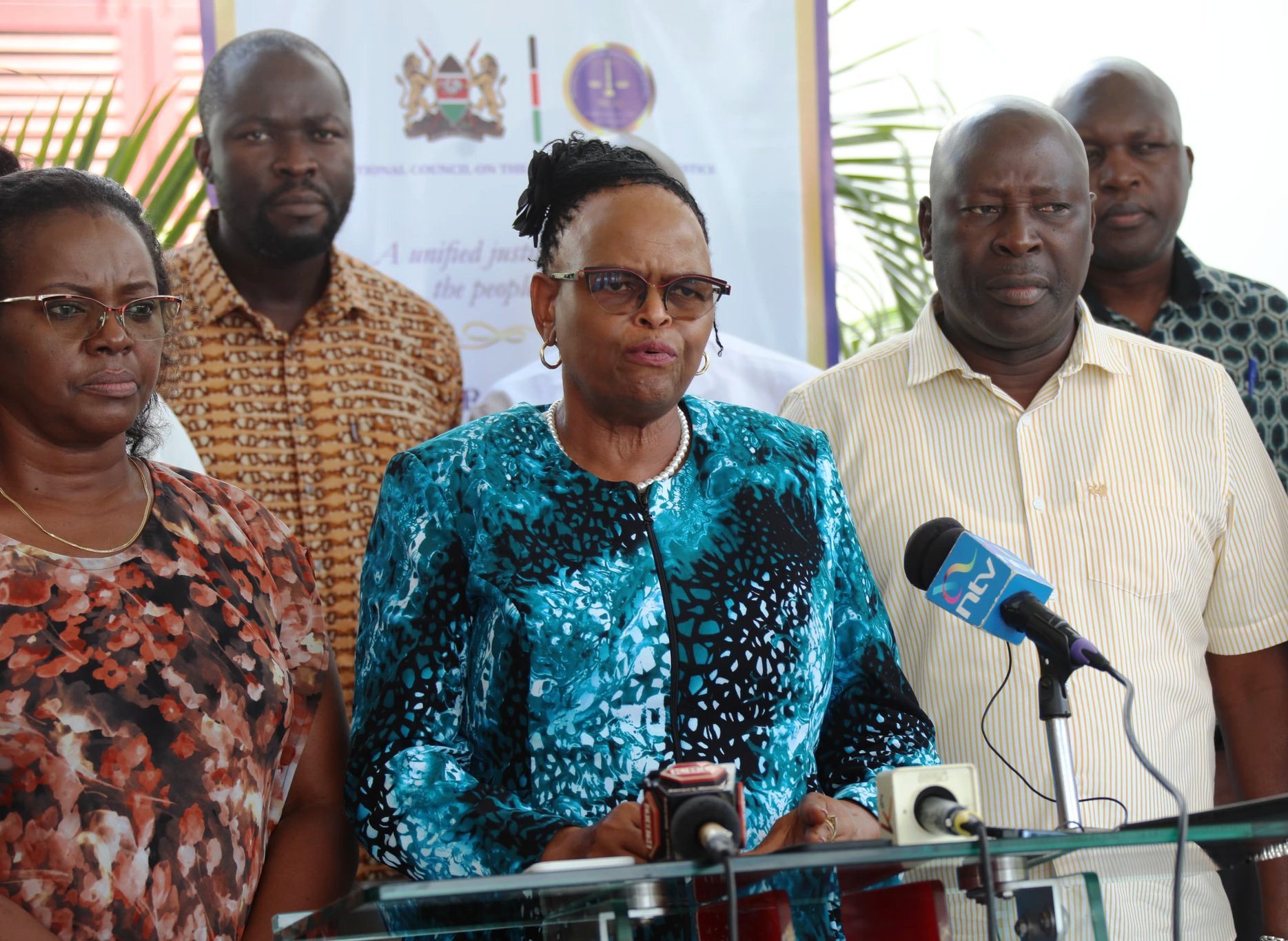The Chief Justice has faced significant criticism from several public figures and legal professionals, particularly Nelson Havi and Ahmednasir Abdullahi, who have raised concerns about alleged corruption within Kenya’s judiciary. Nelson Havi, a prominent lawyer and former President of the Law Society of Kenya (LSK), has been outspoken in his condemnation of CJ Koome’s leadership. He has accused her of failing to offer adequate leadership and direction for the Supreme Court and the judiciary as a whole
Chief Justice Martha Koome has urged Kenyans to hold those in power accountable by maintaining a steadfast zero tolerance towards corruption. She encouraged citizens to report any corrupt activities without fear, emphasising that dismantling corrupt networks requires a comprehensive approach, with the cooperation of the public and the media playing crucial roles.
The Chief Justice has faced significant criticism from several public figures and legal professionals, particularly Nelson Havi and Ahmednasir Abdullahi, who have raised concerns about alleged corruption within Kenya’s judiciary. Nelson Havi, a prominent lawyer and former President of the Law Society of Kenya (LSK), has been outspoken in his condemnation of CJ Koome’s leadership. He has accused her of failing to offer adequate leadership and direction for the Supreme Court and the judiciary as a whole. Havi further alleged that some Supreme Court judges may have been bribed in their handling of the presidential election petition, suggesting that the public has lost confidence in the Supreme Court due to its decisions. He has called for CJ Koome’s resignation, citing deep-rooted corruption within the institution.
Senior Counsel Ahmednasir Abdullahi has also been critical of CJ Koome, accusing her of either being complicit in or unaware of corruption within the judiciary. He alleged that some judicial officers, advocates, and court staff are engaged in corrupt practices, thereby undermining the integrity of the justice system. Abdullahi has called for the resignation of corrupt judicial officers and expressed a lack of confidence in the Judicial Service Commission (JSC) to address these issues effectively.
In response to these allegations, CJ Koome has acknowledged the concerns raised by legal professionals and the public. She has reaffirmed the judiciary’s commitment to ethical standards and has instructed the Secretary of the Judicial Service Commission to deploy an investigative team to engage directly with those making the allegations. Koome has also referred the matter to various investigative agencies, including the National Intelligence Service (NIS), the Directorate of Criminal Investigations (DCI), the Ethics and Anti-Corruption Commission (EACC), and the Inspector General of Police, to ensure thorough investigations.
As the chairperson of the National Council on Administration of Justice (NCAJ), Koome reiterated the council’s dedication to confronting the issue of corruption and economic crimes head-on. She made these remarks during a high-level statutory meeting at PrideInn Paradise Beach Resort and Spa, which was convened to discuss challenges affecting the efficient administration of justice in the country.
Acknowledging that corruption remains a significant national challenge, the CJ expressed regret that the status quo continues to undermine accountability and public trust, which in turn negatively impacts service delivery.
“We all serve the people of Kenya and therefore we recognise that the justice sector institutions represented here play a critical role. We all have a primary responsibility to raise awareness. We must walk this journey with Kenyans, assuring them that they must say NO to corruption and hold us accountable to a stance of zero tolerance to corruption,” Koome asserted, emphasising that the justice sector institutions under the council must do everything possible to prevent corruption.




